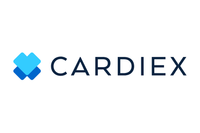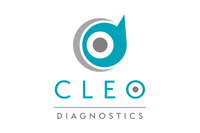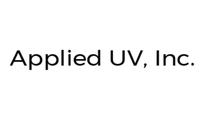CEO Philippe Deschamps says Helius will aim to submit its PoNS device for approval in countries around the world aside from Canada and the US.
Helius Medical Technologies (TSX:HSM,NASDAQ:HSDT) is looking to broaden the potential for its Portable Neuromodulation Stimulator (PoNS) device to a global level, which aims to improve a number of neurological symptoms.
The company has been studying the PoNS device in US and Canada-based clinical trials in combination with physical and cognitive therapy in patients with mild-to-moderate traumatic brain injuries (mTBI).
The PoNS device is a portable neuromodulation stimulator and consists of a controller that sits on a patient’s neck as well as an electrode-covered mouthpiece that’s placed on the tongue and stimulates two key cranial nerves, which results in a flow of neural impulses to the brain stem.
In an interview with the Investing News Network (INN), Phillipe Deschamps, co-founder, president and CEO of Helius Medical, said that the company was founded to build, develop and acquire neuro non-invasive devices to treat people with neurological symptoms of disease or trauma and that the PoNS device is its first asset.
“[The device] stimulates the brain through the tongue, of all things,” he explained. “Why the tongue? The tongue is tied to your brain with four major cranial nerves, two of which are stimulated by this device.”
Deschamps added that when the stimulation goes through to the back of the brain to the PoNS area of the brain, when combined with physical or cognitive exercises it helps the brain “reorganize itself” so the symptoms that are affected by disease or trauma “go away.”
“The first indication [the company] has gotten so far is for the balance deficit tied to [mTBI’s] or sports-concussive injuries,” Deschamps said.
Deschamps said there are roughly 165,000 people in Canada who have the “precise symptoms” which were indicated in something called chronic balance deficit. He explained symptoms are “manifested” by having difficulty balancing and walking and has a big impact on one’s daily life.
“For many people it also causes a reduction in employment … it affects pretty much all aspects of their lives. It’s a big deal to be able to restore someone’s balance,” he said when asked about the significance the device could have.
Adding to that, Deschamps said Helius’ PoNS device is currently the “first and only” of its kind. The company submitted its Class II Medical Device License application to Health Canada last September. By October, the agency gave the company authorization to market the PoNS device and also created a new operating entity formed out of its strategic alliance with HealthTech Connex (HTX) called Heuro Canada.
According to the company, Heuro will be distributing the PoNS treatment across Canada, and already has recently opened up clinics in the Vancouver, BC area and in Montreal, Quebec to provide therapeutic treatment to help people with chronic balance deficit.
In a press release issued on Monday (March 4) by Heuros Canada, it was revealed that the first patient had officially begun the Heuro Program with the PoNS device. According to the statement, the program will allow patients to manage and treat symptoms associated with mTDI throughout a 14-week period.
“It’s an exciting time for us because [this] officially changes us from a development stage company to a commercial company, which our investors will certainly be happy about,” Deschamps told INN, adding that more clinics will be coming throughout the year that shareholders will be keen to watch for.
Aside from its developments in Canada, Helius is aiming to have the PoNS device licensed elsewhere. Case in point, the device is currently under review by the US Food and Drug Administration (FDA) and European regulators. In January, the company announced the FDA was requesting additional information for its De Novo classification and 510(k) clearance for the device, which Deschamps said the questions from the FDA were “perfectly legitimate” for a De Novo classification.
“[The FDA] had perfectly legitimate questions that didn’t occur to us or to them as we were doing our … submission … so we are quite confident that we are able to answer all of their questions with our existing data,” Deschamps said, adding that the company will announce when it has resubmitted to the FDA.
In terms of its applications elsewhere, Helius submitted an application for a CE Mark in the European Union for the PoNS in December. Deschamps said the company is still waiting for comments back from the European Union, but also has plans to do submissions in Australia and China over the course of the year.
“This is very much a global initiative for us,” Deschamps said, and explained that in Canada alone, the size of the addressable market is about C$20 billion. “This is a very, very large market, and [Helius] looks forward to making a little dent in that for the second half of this year.”
Year-to-date, shares of Helius have dipped slightly from C$12.28 on the TSX to C$9.26 as of market close on Monday. On the NASDAQ, Helius’ share price has declined from US$9.11 on January 2 to US$6.96 at the close on Monday.
Don’t forget to follow @INN_LifeScience for real-time updates!
Securities Disclosure: I, Jocelyn Aspa, hold no direct investment interest in any company mentioned in this article.
Editorial Disclosure: The Investing News Network does not guarantee the accuracy or thoroughness of the information reported in contributed article. The opinions expressed in these interviews do not reflect the opinions of the Investing News Network and do not constitute investment advice. All readers are encouraged to perform their own due diligence.



